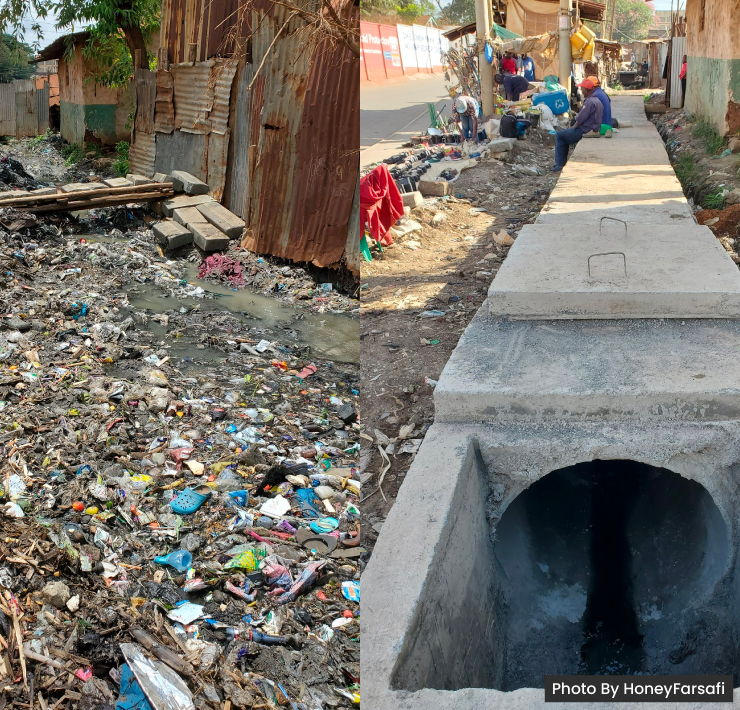You might have seen it. A sustained Twitter campaign by @HoneyFarsafi targeted at Nairobi County governor Johnson Sakaja to fix drainage in Korogocho, an informal settlement to the east of the city. This week, @HoneyFarsafi reported that the part of the slum she’d been campaigning for had been attended to, posting pictures of concrete drainage channels and cabro-paved streets.
Perhaps this fix feels like a drop in the ocean given the scale of Nairobi’s drainage problems, made all the more apparent by the current rainy season. But it makes a world of difference to the people living in that part of Korogocho that their neighbourhood is now passable on foot and children no longer have to jump over free-flowing sewage as they play.
It’s a small step, but one in the right direction.
Last week I had breakfast with a colleague. As we exchanged pleasantries waiting for our meal, she mentioned in passing that she’d be attending a public participation meeting that could clash with our next planned meeting. It turns out that she is an active participant in her neighbourhood’s local resident association, and she has been joining forces with others to oppose the runaway illegal construction projects mushrooming in the area.
There is seemingly one coming up everyday, in flagrant violation of the city’s zoning and other laws, and just basic common sense. No sooner do they successfully stop one, than another materialises in its place, driven by capitalist greed and a lax government reluctant to enforce its own regulations. I marvel at the fact that she and her neighbours have actually managed to marshall enough support to stop the construction of even one unwanted building.
I have been thinking a lot about people like my colleague and Hanifa, who runs the @HoneyFarsafi account. Ordinary people, living ordinary lives, but embracing acts of extraordinary courage everyday. They end up being the people at the forefront of social movements because they campaign for causes before it is fashionable to do so.
Most of us like to think that we’re generally good people who would do good things given the chance. We want to believe that we’d say something if we saw an injustice, or we’d help someone in trouble if we saw they were in trouble. But would we really?
How often does our day to day life offer us chances to speak up, or donate towards a good cause, or join a protest, or sign a petition online, but we choose not to?
I am not just asking you, I am asking myself too.
Because it takes a certain type of person to see that something is wrong and actively choose to do something about it instead of just looking the other way, just as it takes a lot of effort to disrupt the status quo, especially because the status quo is held up by powerful forces.
Fighting for change means taking what could be an initially unpopular stance because you are looking to shift things, and the new is often uncomfortable. Even if people believe in what you’re fighting for, they may not necessarily support you publicly, for fear of retaliation. Or it would be too much of an inconvenience to their orderly lives. Or they have been so browbeaten that they lack imagination that things could actually get better.
But standing aside and leaving the fight to Hanifa and my colleague is a disservice to us all.
Substantive social change will not happen, or will take too long, if more of us do not join the good fight. Bad drainage is killing us. Construction in violation of bylaws is killing us. So is the high cost of living; the lack of medicine and doctors in public hospitals; the badly designed roads and the poor state of public schools across the country. But perhaps our biggest killer is inertia, that collective stupor that leads us to do nothing as our society retrogresses, driving more of us into the kind of hopelessness that makes us vulnerable to killer cults.
The opposition might have called for a stop in Maandamano, but the fight for our lives must go on. Do your small bit. With all of us acting, we might build a Kenya we actually like.

